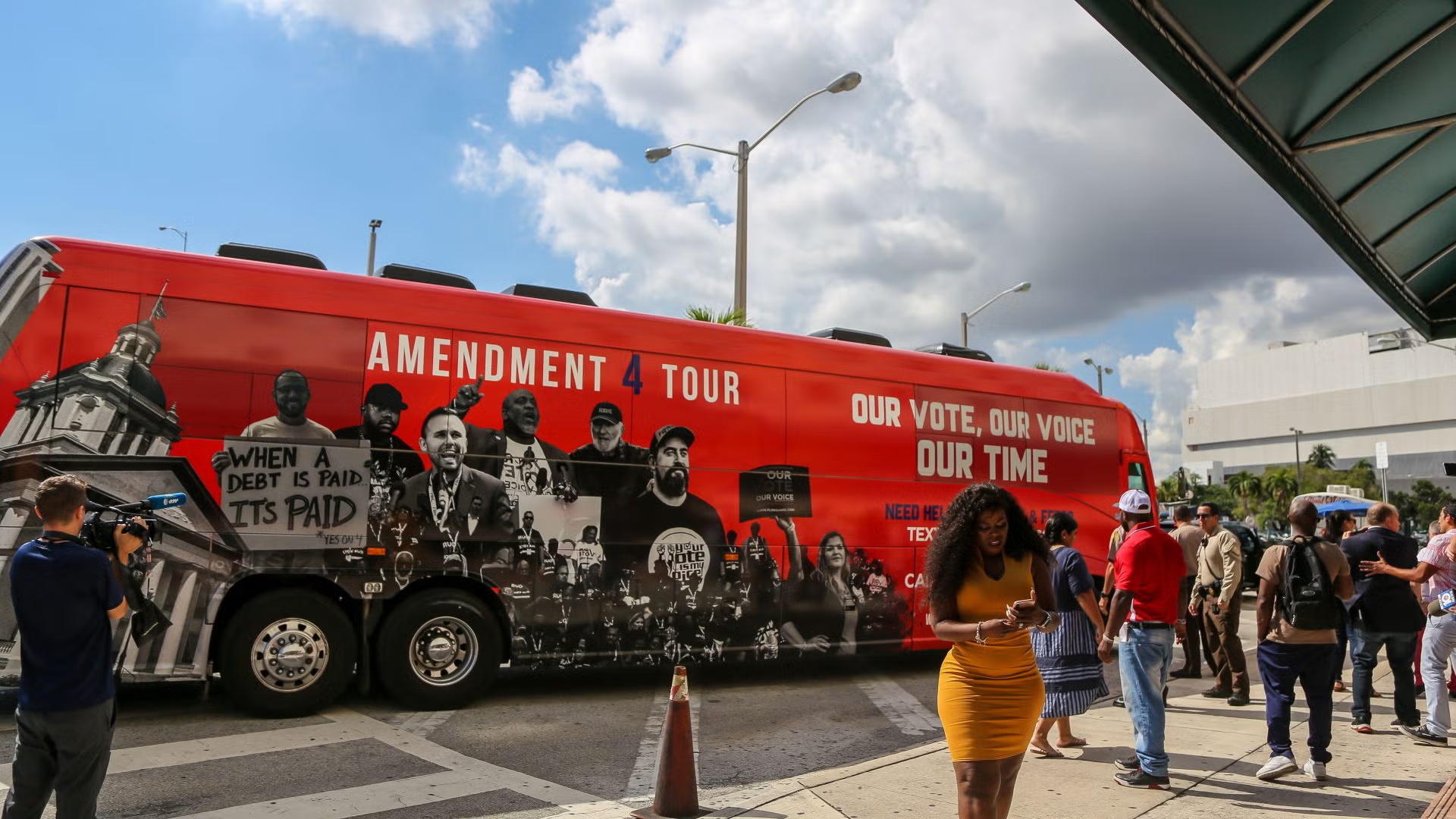Trump commutes sentences/pardons 11 including Michael Milken, Rod Blagojevich, Bernie Kerik and Eddie DeBartolo
February 18, 2020
President Donald Trump issued a spree of clemency decisions Tuesday for high-profile figures -- most notably commuting the sentence of former Illinois Gov. Rod Blagojevich, a Democrat who was convicted for attempting to sell Barack Obama's vacant Senate seat when he was elected president. Blagojevich walked out of the Federal Correctional Institution (FCI) Englewood in Colorado on Tuesday night.
Trump confirmed to reporters earlier Tuesday that he granted clemency for the ex-governor, calling his sentence "ridiculous."
Trump also announced he pardoned financier Michael Milken, who pleaded guilty for violating U.S. securities laws.
Further, Trump confirmed he has pardoned former New York City Police Commissioner Bernard Kerik, who was sentenced on tax fraud charges in 2010. It comes on the same day the White House announced Trump granted a full pardon to former San Francisco 49ers owner Edward DeBartolo Jr., who was convicted of failing to report a bribe to the former governor of Louisiana when he pleaded guilty in 1998.
At Blagojevich's Chicago home, his wife's sister, Deb Mell, said that the family was thrilled, although the logistics of the former governor's return were not complete and that Patti Blagojevich would not speak to reporters until her husband returned home.
"The kids are overjoyed and Patti's ecstatic," Mell said.
Blagojevich was convicted in 2010 on corruption charges and sentenced to 14 years in federal prison, a sentence he has been serving at a federal prison in Littleton, Colo. Trump was considering a commutation for Blagojevich last year, but plans were put on hold amid worries over pushback.
"Many people disagreed with the sentence," Trump told reporters on Tuesday, before turning to two individuals he's bashed during his time in office. "He's a Democrat, he's not a Republican It was a prosecution by the same people, [James] Comey, [Patrick Fitzgerald], the same group."
Trump also expressed sympathy for the former Illinois governor's children.
"Very far from his children," Trump said. "They rarely get to see their father outside of an orange uniform. I saw that and I did commute his sentence."
The president sounded off on the harshness of Blagojevich's sentence -- comments that come as he's also complained about the prosecution of GOP operative Roger Stone in connection with the Russia probe.
"That was a tremendously powerful, ridiculous sentence in my opinion," Trump said.
Blagojevich, who hailed from a state with a long history of pay-to-play schemes, was one of four out of seven consecutive Illinois governors to be sent to prison. His immediate predecessor, George Ryan, was convicted of racketeering for his actions a governor and secretary of state.
He was convicted of political corruption just months after he appeared on Trump's reality TV show, "Celebrity Apprentice."
The 63-year-old Democrat exhausted his last appellate option in 2018 and had seemed destined to remain behind bars until his projected 2024 release date. His wife, Patti, went on a media blitz in 2018 to encourage Trump to step in, praising the president and likening the investigation of her husband to special prosecutor Robert Mueller's investigation into Russian meddling in the 2016 election -- a probe Trump long characterized as a "witch hunt."
Blagojevich originally was convicted on 18 counts, including lying to the FBI, wire fraud for trying to trade an appointment to the Obama seat for contributions, and for the attempted extortion of a children's hospital executive. The 7th U.S. Circuit Court of Appeals in Chicago in 2015 tossed five of 18 convictions, including ones in which he offered to appoint someone to a high-paying job in the Senate.
Blagojevich became the brunt of jokes for foul-mouthed rants on wiretaps released after his Dec. 9, 2008, arrest while still governor. On the most notorious recording, he gushes about profiting by naming someone to the seat Obama vacated to become president: "I've got this thing and it's f------ golden. And I'm just not giving it up for f------ nothing."
Trump tweeted about Blagojevich in August, noting that the White House's staff was looking into whether or not a commutation for Blagojevich was possible.
"Rod Blagojevich, the former Governor of Illinois, was sentenced to 14 years in prison. He has served 7 years. Many people have asked that I study the possibility of commuting his sentence in that it was a very severe one. White House staff is continuing the review of this matter," the president said.
Blagojevich, one of the 10 people whose sentence Trump has commuted during his presidency, also was impeached as the governor of Illinois over his conduct.
Kerik was previously President George W. Bush's nominee for Secretary of Homeland Security but was later sentenced in 2010 to four years in federal prison after pleading guilty to eight felonies, including tax fraud and lying to the White House while being vetted for the Homeland Security post in 2004. He has since completed the sentence, but Trump's symbolic pardon completely clears the former New York City Police commissioner.
Kerik was hailed as a hero after the Sept. 11 terror attacks and eventually showed remorse during the sentencing process.
"I know I must be punished," he said before being sentenced. "I only ask that you allow me to return to my wife and two little girls as soon as possible." His daughters were 7 and 9 years old at the time.
Trump pardoned Ariel Friedler, who pleaded guilty in 2014 to charges of conspiracy to access a protected computer without authorization and served two months in prison; Paul Pogue, who was convicted of underpaying on his taxes; David Safavian, who was convicted of making false statements and obstructing an investigation; and Angela Stanton, who was sentenced to home confinement for a role in a stolen vehicle ring.
Trump commuted the sentences of Tynice Nichole Hall, who was sentenced to 18 years in prison for allowing her apartment to be used in drug distribution; Crystal Munoz, who has spent 12 years in prison for a role she played in a marijuana smuggling ring; and Judith Negron, who was convicted for a role in a scheme to defraud the federal government.







